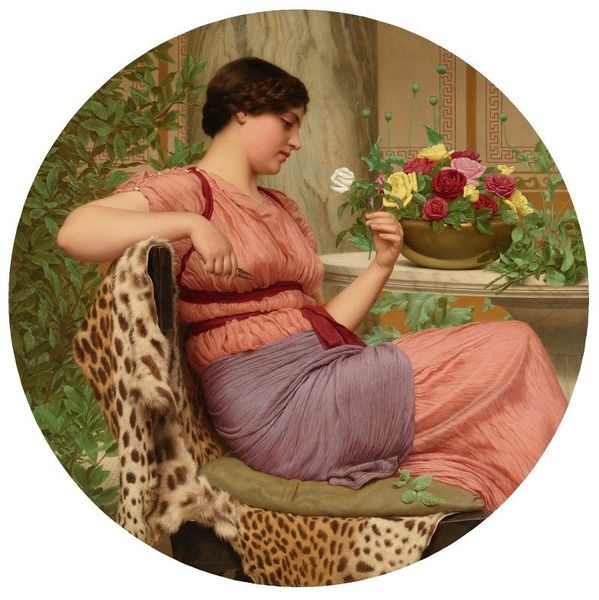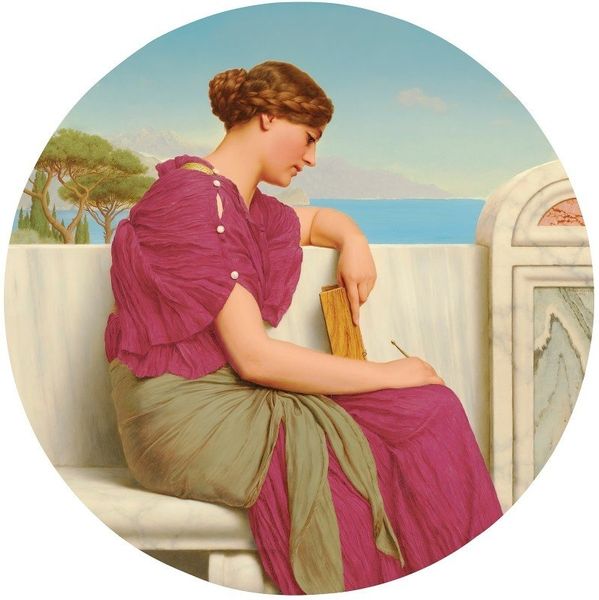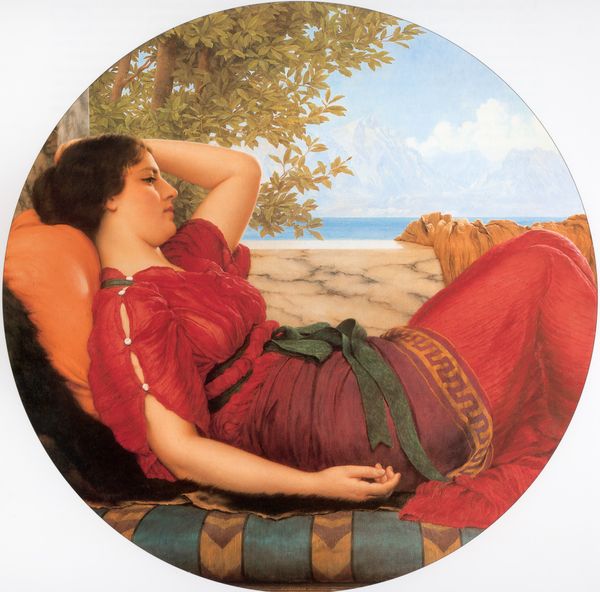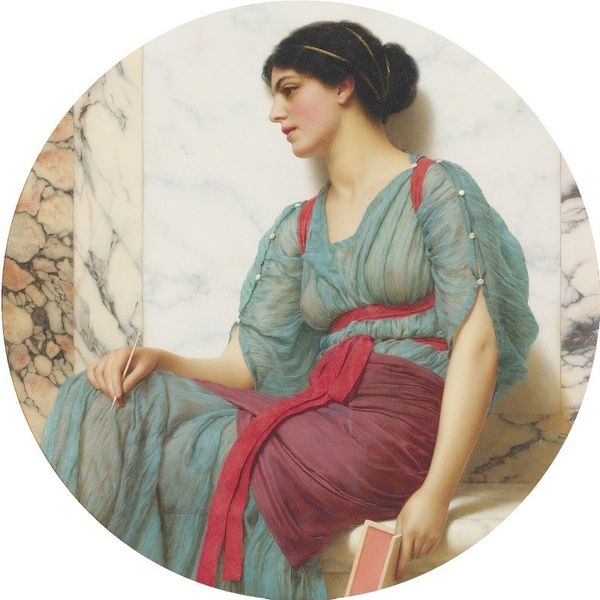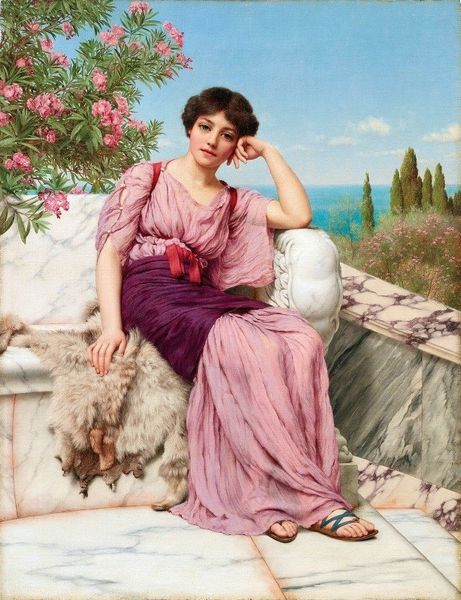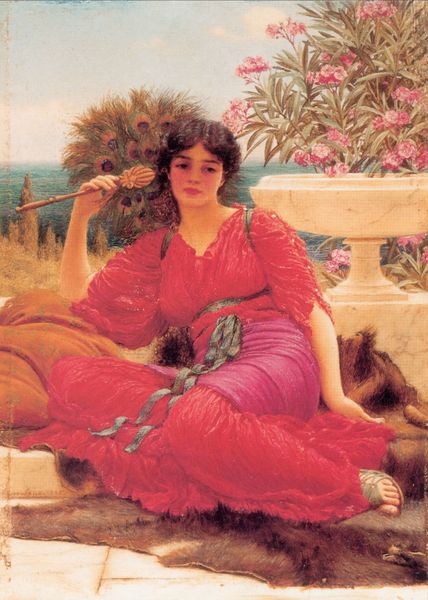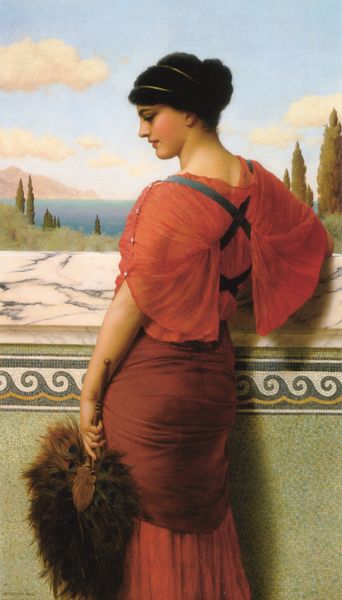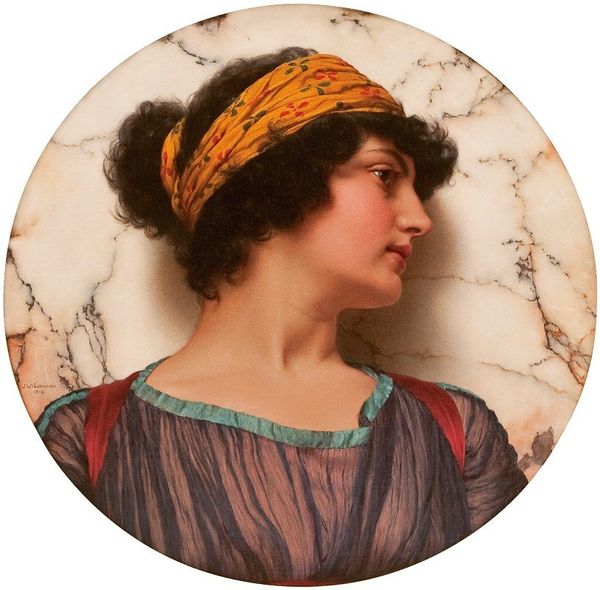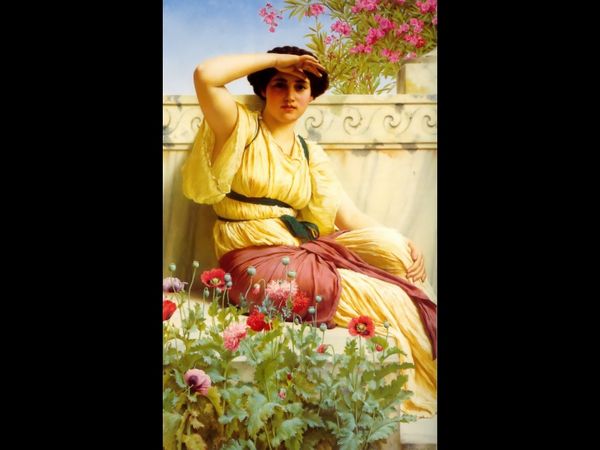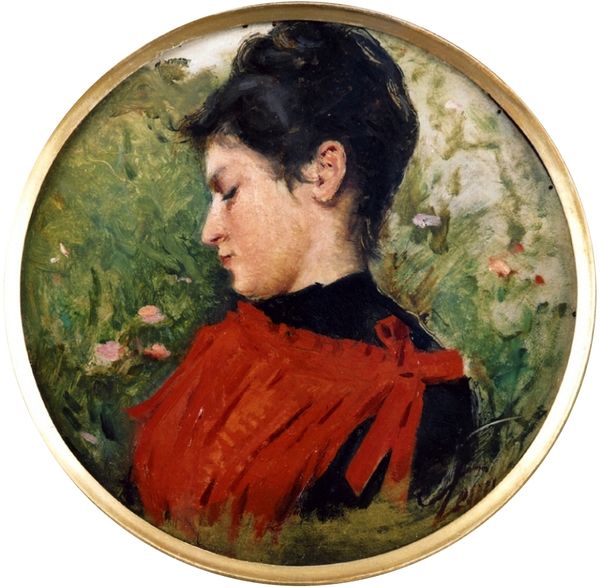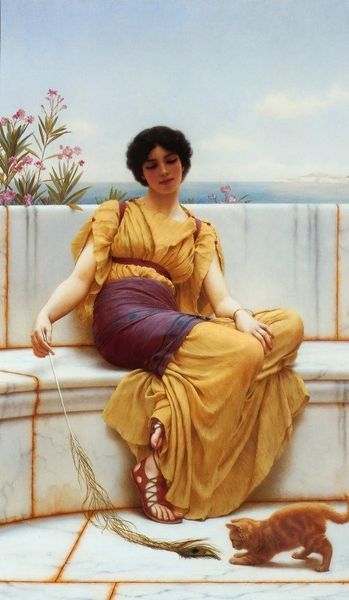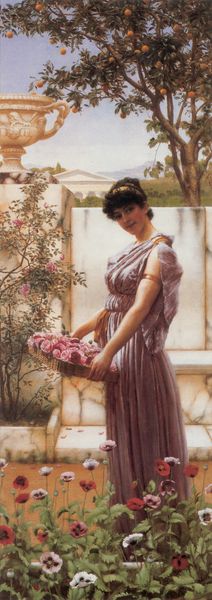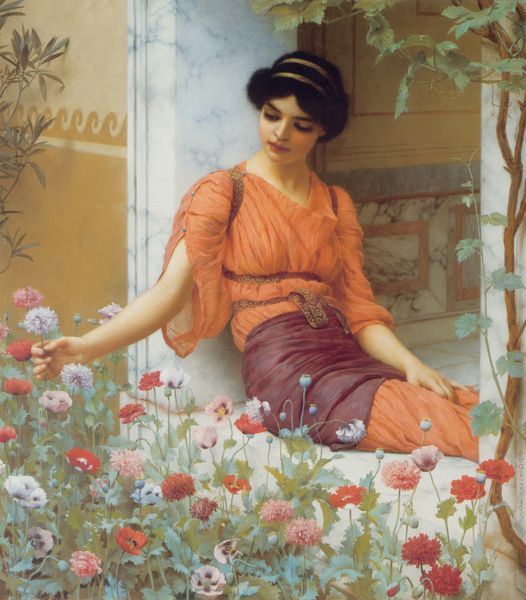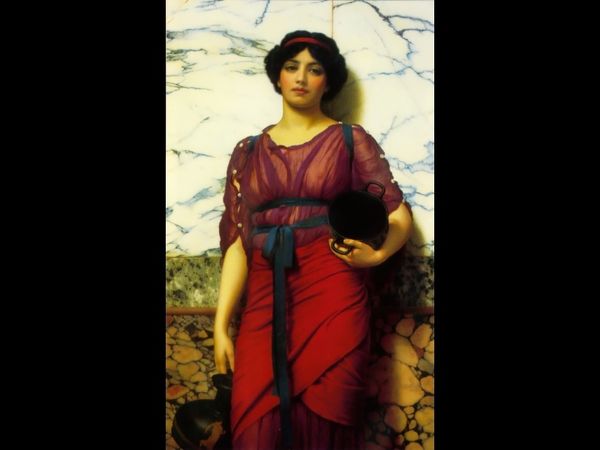
Copyright: Public domain
Curator: This painting is John William Godward's "Golden Hours," completed in 1913. Godward, a devoted follower of Alma-Tadema, worked in the late neo-classical style, mainly depicting women in classical dress, often in leisurely poses. It is an oil painting currently in a private collection. Editor: Oh, she just radiates a kind of quiet knowing, doesn't she? The way she's holding the fan up, almost as if she’s holding court, yet so relaxed, it's a lazy, warm afternoon captured in a gaze. Curator: Absolutely. Godward meticulously constructs a world steeped in romantic idealism. Notice how her posture and garment echo antique grace while subtly positioning her as an object of desire, fitting well within the gaze of the early 20th century viewer. Editor: But look closer—the brushwork around the trees and sky is almost impressionistic! Godward's trapped in this push-pull between rigid classicism and this yearning for something more fluid and expressive, you know? It's why there’s this almost tangible stillness that hints at things unsaid. Curator: Indeed! He operates in a transitional period when academic art started to cede ground to modern art movements, so you see him grappling with expectations and traditions and simultaneously hinting toward a desire for modern artistic liberties. Editor: So, is that hint of landscape intended to root her in a real time and place or a fantastical space? The artist places the sitter at the meeting of architecture and the natural environment in the kind of location that can and cannot be discovered simultaneously. It’s somewhere in between. Curator: In many ways, this image speaks to anxieties around change—artistic, social, and political. Godward renders a paradise about to vanish, overshadowed by shifting artistic preferences. The woman becomes almost a symbolic personification, beautiful and untouchable, set against the unstoppable tide of progress. Editor: It feels melancholy, in a way. A beautiful farewell note written on a summer day. It makes you wonder if he sensed the changing times, this longing for beauty as the world moved towards something less…ornate. Curator: It's poignant. He offers a moment of refined beauty that stands in quiet opposition to the increasing cacophony of the modern world. Thank you for considering its layers. Editor: My pleasure. Thank you.
Comments
No comments
Be the first to comment and join the conversation on the ultimate creative platform.
